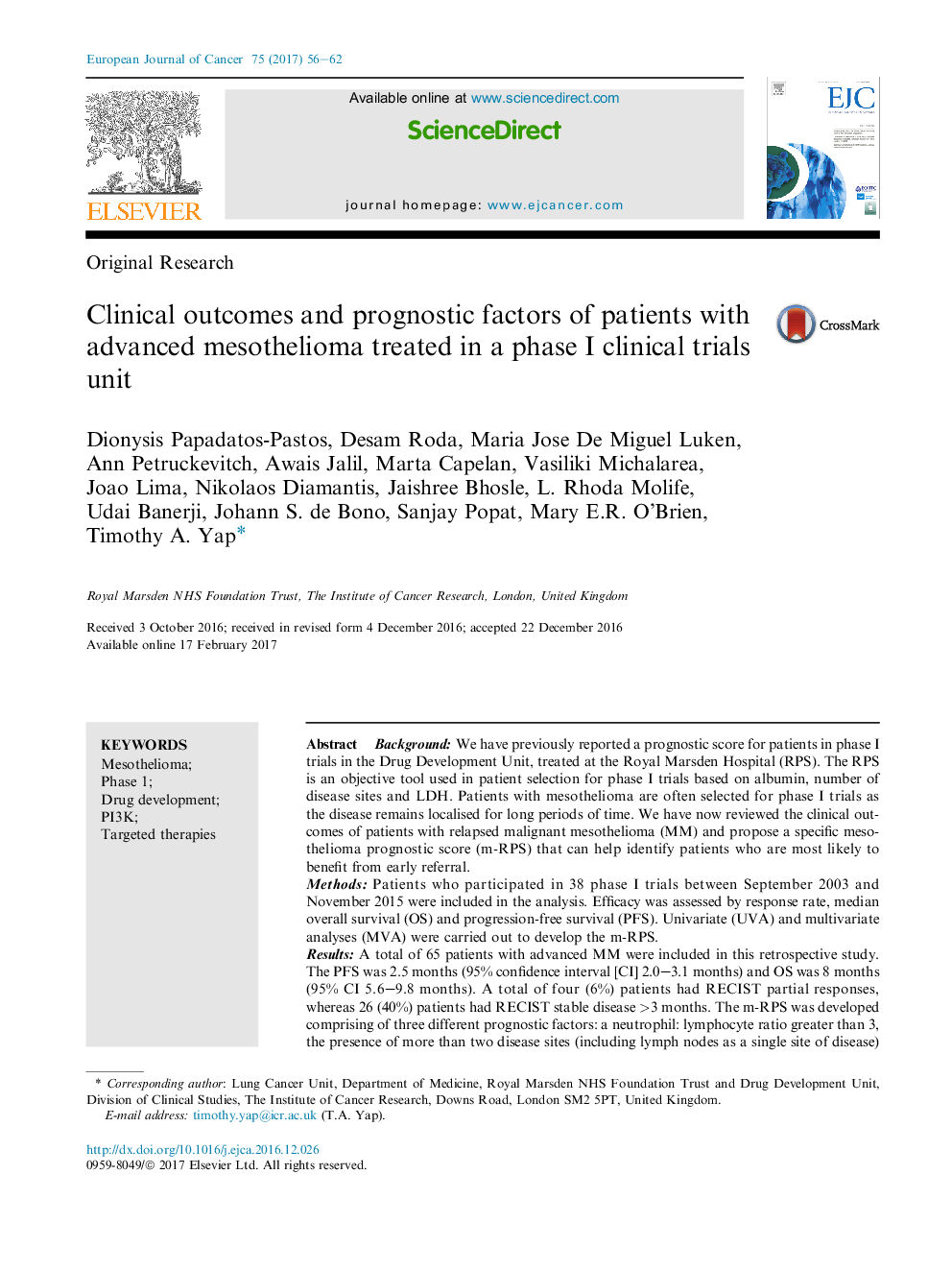| کد مقاله | کد نشریه | سال انتشار | مقاله انگلیسی | نسخه تمام متن |
|---|---|---|---|---|
| 5526240 | 1547057 | 2017 | 7 صفحه PDF | دانلود رایگان |

- Phase I trials may represent a viable alternative to second-line chemotherapy for patients with advanced mesothelioma.
- Phase I clinical trial therapies in patients with mesothelioma are well tolerated; adverse events were fully reversible.
- The m-RPS may potentially be used in the future to aid in the selection of patients with mesothelioma for phase I trials.
- Patients treated with PI3K inhibitors had a trend towards improved survival compared with the rest of the patient population.
BackgroundWe have previously reported a prognostic score for patients in phase I trials in the Drug Development Unit, treated at the Royal Marsden Hospital (RPS). The RPS is an objective tool used in patient selection for phase I trials based on albumin, number of disease sites and LDH. Patients with mesothelioma are often selected for phase I trials as the disease remains localised for long periods of time. We have now reviewed the clinical outcomes of patients with relapsed malignant mesothelioma (MM) and propose a specific mesothelioma prognostic score (m-RPS) that can help identify patients who are most likely to benefit from early referral.MethodsPatients who participated in 38 phase I trials between September 2003 and November 2015 were included in the analysis. Efficacy was assessed by response rate, median overall survival (OS) and progression-free survival (PFS). Univariate (UVA) and multivariate analyses (MVA) were carried out to develop the m-RPS.ResultsA total of 65 patients with advanced MM were included in this retrospective study. The PFS was 2.5 months (95% confidence interval [CI] 2.0-3.1 months) and OS was 8 months (95% CI 5.6-9.8 months). A total of four (6%) patients had RECIST partial responses, whereas 26 (40%) patients had RECIST stable disease >3 months. The m-RPS was developed comprising of three different prognostic factors: a neutrophil: lymphocyte ratio greater than 3, the presence of more than two disease sites (including lymph nodes as a single site of disease) and albumin levels less than 35 from the MVA. Patients each received a score of 1 for the presence of each factor. Patients in group A (m-RPS 0-1; n = 35) had a median OS of 13.4 months (95% CI 8.5-21.6), whereas those in group B (m-RPS 2-3; n = 30) had a median OS of 4.0 months (95% CI 2.9-7.1, P < 0.0001). A total of 56 (86%) patients experienced G1-2 toxicities, whereas reversible G3-4 toxicities were observed in 18 (28%) patients. Only 10 (15%) patients discontinued phase I trials due to toxicity.ConclusionsPhase I clinical trial therapies were well tolerated with early signals of antitumour activity in advanced MM patients. The m-RPS is a useful tool to assess MM patient suitability for phase I trials and should now be prospectively validated.
Journal: European Journal of Cancer - Volume 75, April 2017, Pages 56-62